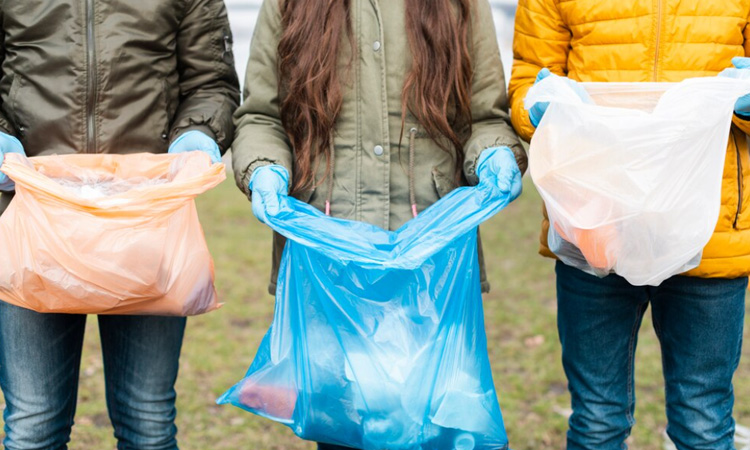The plastic manufacturing industry stands at a crossroads, facing a dual challenge of environmental sustainability and social responsibility. As the demand for plastic products continues to rise, so does the environmental impact and social consequences associate with their production. In this article, we will explore the intricate relationship between the plastic manufacturing industry and its responsibilities towards the environment and society. From the production process to waste management, we’ll examine the key issues, potential solutions, and the path forward for a more responsible and sustainable industry.
The Plastic Boom: A Double-Edged Sword
- Rise of Plastic Consumption:
The versatility and affordability of plastic have made it a ubiquitous material in our daily lives. However, the exponential growth in plastic consumption has led to environmental concerns, including pollution, resource depletion, and habitat destruction.
- Environmental Impact of Plastic Production:
The manufacturing process of plastics involves the extraction of fossil fuels, energy-intensive production, and the release of pollutants. Understanding the environmental footprint of plastic production is crucial for addressing its impact on the planet.
Waste Management Woes: The Aftermath of Plastic Consumption
- Single-Use Plastics and Pollution:
The proliferation of single-use plastics exacerbates the issue of plastic waste. Improper disposal and the lack of effective waste management contribute to plastic pollution in oceans, rivers, and landfills.
- Microplastics: The Unseen Threat:
As larger plastic items break down, they give rise to microplastics—tiny particles that pose a threat to marine life, ecosystems, and potentially human health. Addressing the microplastics challenge requires a holistic approach from the plastic manufacturing industry.
Environmental Responsibility in Plastic Production
- Sustainable Sourcing of Raw Materials:
The plastic manufacturing industry can mitigate its environmental impact by adopting sustainable sourcing practices for raw materials. This includes exploring alternative materials, recycling, and reducing reliance on fossil fuels.
- Energy Efficiency and Green Practices:
Implementing energy-efficient technologies and adopting green practices in the production process can significantly reduce the carbon footprint of plastic manufacturing. Investing in renewable energy sources and efficient machinery is a step towards environmental responsibility.
- Innovation in Biodegradable Plastics:
The development of biodegradable plastics offers a potential solution to the longevity of plastic waste. Investing in research and development for eco-friendly alternatives is a key aspect of the industry’s environmental responsibility.
Social Responsibility: Nurturing Communities and Workforces
- Labor Practices and Fair Wages:
The plastic manufacturing industry bears a responsibility to ensure fair labor practices and wages for its workforce. Implementing ethical employment standards fosters a positive social impact within the industry.
- Community Engagement and Support:
Engaging with local communities and providing support for social development initiatives can strengthen the industry’s social responsibility. This includes education, healthcare, and infrastructure development in areas where plastic manufacturing facilities operate.
- Safety and Health Standards:
Ensuring the safety and health of workers within the plastic manufacturing sector is paramount. Strict adherence to safety standards, proper training, and the implementation of health protocols contribute to a socially responsible industry.
Circular Economy Approach: Closing the Loop for Sustainability
- Product Design for Recyclability:
Embracing a circular economy model involves designing plastic products with recyclability in mind. This approach aims to extend the life cycle of materials, reduce waste, and minimize the environmental impact of plastic production.
- Investment in Recycling Infrastructure:
The plastic manufacturing industry can contribute to a sustainable future by investing in recycling infrastructure. Supporting efficient recycling processes, developing technologies for better waste management, and promoting a circular economy are essential steps.
- Extended Producer Responsibility (EPR):
Implementing Extended Producer Responsibility programs, where manufacturers take responsibility for the entire life cycle of their products, encourages the industry to actively participate in waste management and recycling initiatives.
Regulatory Compliance: Navigating the Legal Landscape
- Environmental Regulations:
Adherence to environmental regulations and standards is a foundational aspect of the plastic manufacturing industry’s responsibility. Compliance ensures that operations align with environmental protection laws.
- Social Compliance:
Social responsibility extends to compliance with labor laws, fair employment practices, and community engagement. Upholding ethical standards and meeting social obligations are integral components of the industry’s commitment to responsibility.
Transparency and Accountability: Building Trust in the Industry
- Stakeholder Communication:
Open and transparent communication with stakeholders, including consumers, environmental organizations, and local communities, builds trust. Sharing information about sustainable practices, initiatives, and challenges fosters accountability.
- Certifications and Standards:
Obtaining and adhering to recognized certifications and standards, such as those related to environmental management and social responsibility, demonstrates a commitment to responsible business practices.
Collaboration for a Sustainable Future
- Industry Collaboration:
Collaboration within the plastic manufacturing industry is crucial for sharing best practices, fostering innovation, and collectively addressing environmental and social challenges. Industry-wide initiatives can lead to systemic change.
- Partnerships with NGOs and Governments:
Collaborating with non-governmental organizations (NGOs) and governments can amplify the industry’s impact. Partnerships can focus on implementing sustainable practices, supporting community development, and influencing regulatory frameworks.
A Balancing Act for a Better Tomorrow
The plastic manufacturing industry faces a delicate balancing act between meeting the demands of a growing global population and addressing the environmental and social consequences of its operations. By embracing sustainable practices, investing in innovation, and fostering collaborative efforts, the industry can play a pivotal role in shaping a future where plastics coexist harmoniously with the planet and benefit both people and the environment. Striking this balance requires a commitment to environmental stewardship, ethical labor practices, and a vision for a more responsible and sustainable industry.
Next On Your Reading List:



